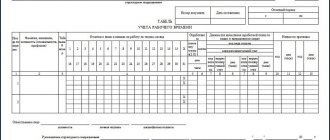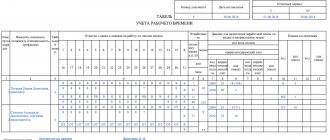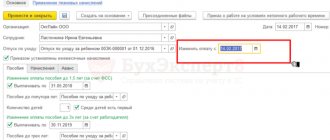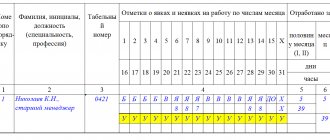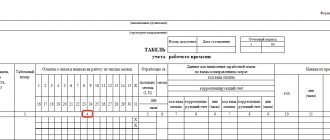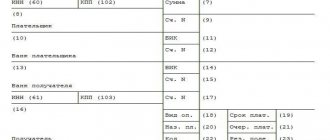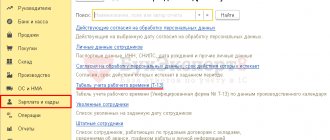Methods for encouraging donors and a list of benefits in 2020
Federal Law No. 125, adopted in 2012, stipulates all methods of encouraging donors.
According to the norms, they are provided with free food after donating biological fluid (meat and dairy dishes, red caviar, chocolate). They can replace lunch portions with fish, natural juice and caviar. For your information! The law does not allow monetary compensation to be paid instead of donated food.
Citizens who have donated the maximum amount of biomaterial are provided with vouchers to the resort by the state.
Persons who have been awarded the title “Honorary Donor” (if they have donated blood 40 times and plasma 60 times) in 2019 can:
- Receive medical care in government medical institutions without waiting lists.
- The vacation period can be chosen as desired.
- Get a ticket to the resort ahead of the queue.
- Receive a cash reward every year (in 2020 its amount is 13,041 rubles).
Based on Federal Law No. 125, employers are required to provide certain guarantees to donors:
- The day before (before the biofluid is collected), the employee must undergo a medical examination. This factor gives him the right not to go to work.
- The day of donation of biomaterial is also considered a weekend.
- If for some reason an employee returns to work after the donation, then his time off for donating blood is transferred to another date.
- For donating blood, you are always given one day off to replenish your strength.
Attention! The law does not allow going to work on a day of rest. Otherwise, the citizen will not be given a day off.
In situations where the donation took place during working hours and the person did not show up for work, he is given one day off to recover.
If, after submitting the biomaterial, the employee continues to work, then he is also given substitute time off for that day. Over the course of a year, a person can donate whole blood no more than 5 times, and plasma no more than 12 times. As a result, a donor of biomaterial can receive a maximum of 24 days off per year.
By donating biomaterial during non-working hours (on vacation, on a weekend or a holiday), the donor receives 2 days to rest. Payment for a donation is not made if it was made while the person was on sick leave.
The employee can choose the time for a medical examination before donating blood. And even if he does not show up for work that day and does not tell the employer about it in advance, his actions will not be assessed as absenteeism. This day will be paid subject to the relevant certificate.
- If an employer asks an employee to go to work on the day of blood donation, a corresponding order is issued. In this case, the employee has the right to refuse.
- If an employee himself expresses a desire to go to work, he writes a statement about this.
For your information! There are types of work that a weakened person cannot do. In such cases, the administration may not allow you to work.
The donor, at his own discretion, chooses the dates when to take advantage of the weekend and writes an application for time off. Additional days of rest for donating blood are allocated based on the order. It notes the dates, the reason for providing the benefit, and the method of payment. Most often, agreed-upon time off is connected to the upcoming vacation.
When answering the question of how long a donor certificate is valid, it should be noted that it is valid for only one year. The countdown begins from the date of donation.
Donor time off can be recorded in the timesheet only if the employee provides the employer with the relevant certificates:
- the first is issued when a person undergoes a medical examination (form No. 401/u);
- the second is issued on the day of donation (form No. 402/u).
- If, when submitting the biomaterial, the employee did not warn the administration of his company, then in the report card about. Upon receipt of the certificate, the mark on absenteeism is changed to “absenteeism while performing public duties.”
- If the day of donation becomes a working day for an employee, then the work output is noted in the timesheet. In this case, a paid day off is assigned on the date chosen by the donor citizen.
- If an employee took two days off on the basis of a donation and did not warn the managers, then after presenting certificate No. 401/u, the days of “failure to appear” are corrected to legally paid days.
- If an employee presented certificate No. 401/u (about passing a medical examination), but subsequently did not confirm his actions with certificate No. 402/u, then the missed day will be recorded as a “failure to appear” and will not be paid.
Often citizens, wanting to donate blood for free, are interested in who pays for donor days, the employer or the Social Insurance Fund?
Salaries for donation periods are calculated on the basis of the Labor Code of the Russian Federation No. 197-FZ, part 5, art. 186. The law provides for payment of time off based on the calculation of average daily earnings.
For this purpose, the amount of annual earnings with additional payments plus bonuses is taken and divided by the number of trips to work. The resulting value is multiplied by the number of days off.
The use of donor days is possible for 12 months from the date of donation of the biomaterial.
The Labor Code of the Russian Federation gives the right to all donors of biofluid 2 days of rest. And in this case, it doesn’t matter how their working day is structured. An employee’s schedule may include:
- a five-day working day in which the working day is 8 hours;
- 12-hour shifts with a couple of days off;
- three days later.
The Labor Code of the Russian Federation does not illustrate the procedure for issuing donor days and paying for them during official shift work. Therefore, the Federal Labor Service took up the task of clarifying the situation.
She indicated in official letters that it is necessary for such persons to be given time off for donating blood on days that coincide with working days. But the duration of the rest day should be exactly 8 hours.
If an employee’s shift lasts 12 hours or a day, he must take only 8 hours off from this time.
Sample application for the provision of donor days by the employer.
Federal Law No. 125 states that leave for blood donors is granted only on the basis of certificates No. 401/ and No. 402/u, which they must give to their employer. However, there are pitfalls in this matter that you need to be aware of:
- Sometimes employers try to punish an employee who has not shown up for work for two days for absenteeism. The Labor Code of the Russian Federation does not say that the employee is obliged to warn the employer that he is going to donate his blood. Therefore, punishing the employee in this case will be illegal.
- A violation of the law can also be considered when an employee is given only one additional day off, provided that he submitted the biomaterial on a day off or during the vacation period. By law, the employer in such cases is obliged to compensate for two days.
- The administration of the company where a person works cannot indicate which days the employee should take. The employee himself chooses the most convenient dates for additional vacation.
Important! If a donor’s rights are violated, he should contact Rostrud, which specializes in resolving conflicts between employees and employers.
We invite you to familiarize yourself with Military injury - establishing the fact and processing payments
The state protects the rights of donors. They are unconditional, so they cannot be influenced in any way by the manager or production interests. But the employment contract may contain a clause by which the employee undertakes to warn in advance about planned days of absence. In this situation, the fact that the employee is absent will not be a surprise to the employer.
Important! If the time off offered for donation was not used by the donor before dismissal, then it should be remembered that monetary compensation is not assigned for them.
It is also worth understanding that time off earned at one company will not be paid if you change your place of employment.
The donor must understand that after donating blood, he does not need to immediately go to work. Although this norm may be violated if there was a preliminary agreement between management and the employee about his return to work.
This material explained what additional days of rest are for donating blood. Now you know how a donor certificate is paid for, you know its validity period and how you need to register donor days.
Questions and answers
Question 1. Can a healthy woman on sick leave to care for her baby count on donation benefits? Answer 1. A healthy parent on maternity leave receives all benefits for donation.
Question 2. Poultry farm worker N. Kovaleva has an average monthly salary of 35,000 rubles. Once she decided to donate blood, for which she received an extra day off. How will the donor certificate be paid for if the time off is combined with vacation? Answer 2. First, you should calculate vacation pay: 35,000 X 12 = 420,000 rubles. is the amount earned in a year.
- 29.5 X 12 = 354 is the number of trips to work per year.
- 420,000: 354 = 1,186.44 rubles. – this is the salary for one vacation day.
Then the cost of time off is calculated:
- 420,000: 248 (number of trips to work in 1 year) = 1,693.55 rubles. – the amount of donor payment for 1 day.
Question 3. Will donor time off be included in the length of service? Answer 3. Since donor days off are paid minus insurance contributions (Ministry of Health and Social Development, letter No. 784-16), they will necessarily be included in the length of service.
By clicking on the button, you consent to the processing of your personal data and agree to the personal data processing policy.
Blood donation confirmation
The fact that an employee is absent from the workplace for a valid reason must have appropriate documentary evidence. For this purpose, two types of certificates are used, which were discussed earlier:
- form No. 401/у, for the day of the immediate medical examination;
- form No. 402/у, for the day on which the blood fluid was donated.
If both days coincide, it is enough to present the second document to the employer.
When filling out the document, opposite the box with these days, first enter “NN” or “30”, the adjustment is made after the fact of providing the certificate.
The law does not imply an employee’s obligation to provide warning in connection with a planned blood donation, so absence from work on this day cannot be regarded as absenteeism. But the employer has the right to require the employee to warn about the day of the planned blood donation.
The legislative framework
Everything related to the regulation of the relationship between the employer and the employee-donor is included in the current regulations.
Among them are:
- Federal Law of July 22, 2012 No. 125-FZ “On the donation of blood and its components.” This document defines the financial aspects and also establishes the legal basis for protecting the health of blood donors and its components, recipients and the protection of their rights.
- Order of the Ministry of Health of the Russian Federation No. 364 of September 14, 2001 describes the restrictions associated with blood donation. In particular, this document lists cases when sampling of biomaterial is unacceptable.
- Art. 186 of the Labor Code of the Russian Federation establishes guarantees and compensation for employees in the event that they donate blood.
Any violation of regulatory documents is unacceptable. If the company's management ignores the law, a complaint should be filed with law enforcement agencies.
Who can be a donor
According to the law, people who have reached the age of eighteen or have acquired full legal capacity before reaching the age of eighteen, who have expressed a voluntary desire to donate blood and its components, have undergone a voluntary medical examination and have no medical contraindications for donating blood and (or) its components, can donate blood.
A medical examination of the donor before donating blood and the issuance of certificates about his state of health are free of charge.
Before collecting biomaterial, this person must:
- verify your identity using a passport or other identification document;
- inform the doctor about all past infectious diseases, being in contact with infectious patients, staying in areas where there is a threat of the emergence and spread of mass infectious diseases or epidemics, about the use of narcotic drugs, psychotropic substances, about working in harmful and dangerous working conditions, and also vaccinations and surgical interventions performed within a year before the date of blood donation;
- undergo a medical examination;
- donate blood to determine its characteristics: group, hemoglobin level and hematocrit.
- Entering the research results into the donor's card;
- Based on research, the transfusiologist allows for donation and determines its type, as well as the volume of blood and its components taken;
- Registration of “Referrals for blood donation, plasmapheresis, etc.” (form N 404/у);
- the donor is sent to the department for collecting blood and its components.
The biomaterial is selected in the following form:
- blood;
- plasma;
- immune plasma;
- plasma for fractionation;
- blood cells.
If it is rented for a fee, then its price depends on the type of material. For example, in 201, for 100 ml of simple blood they paid up to 8% of the living wage in force on the date of blood donation, established in the subject of the Russian Federation where the citizen donates blood. The size of the fee depends on the blood phenotype and the presence of red blood cell antigens.
They pay significantly more for blood cells:
- platelets - 35% of the subsistence level;
- red blood cells - 25% of the subsistence level;
- Leukocytes - 45% of the subsistence level;
- Plasma - 15% of the subsistence level.
Each citizen from whom biomaterial has been collected must be given hot meals in a medical facility.
This mandatory preference can be replaced by a cash payment
in cases established by the Ministry of Health:
- donation of blood and (or) its components using mobile blood collection complexes;
- if the donor submits a written application to replace free food with monetary compensation;
- in case of donation of blood and (or) its components in premises provided by the employer.
Its size is equal to 5% of the established subsistence level of the working-age population in the subject where blood donation is made.
What days are considered donor days?
Additional days of rest for donating blood are allocated based on the order. It notes the dates, the reason for providing the benefit, and the method of payment. Most often, agreed-upon time off is connected to the upcoming vacation. When answering the question of how long a donor certificate is valid, it should be noted that it is valid for only one year. The countdown begins from the date of donation.
- fill out the form and register;
- verify your identity using a passport;
- inform the doctor about all diseases and surgical interventions that have occurred to him in the last six months;
- undergo a medical examination;
- donate blood from a finger prick to determine its characteristics: group, hemoglobin level and others.
If you need help with legal references, you have a complex case, and you don’t know how to draw up documents, the MFC unreasonably requires additional papers and certificates, or refuses them altogether, then we offer free legal advice:
In addition, its adoption will contribute to the development of rural areas in Russia, which is an important point against the backdrop of today’s urbanization, that is, the process of urban growth, in connection with which the increase in the proportion of the urban population, the increasing role of cities in all spheres of society and the predominance of urban way of life over the rural throughout the country.
The accounting department of the organization, on the basis of the brought certificate, writes a special order to provide additional leave to the employee. This order is the basis for paying for donor days according to average earnings.
- confirm your personal data with documents, that is, provide a passport;
- register and fill out a donor form;
- inform the doctor about the presence of diseases, operations performed during the previous year, as well as vaccinations;
- visit a therapist for a medical examination;
- donate blood from a finger prick, which will allow you to check hemoglobin and other necessary criteria.
Earnings for a missed day are fully retained. At the same time, an employee can receive a day off even if he works at two different enterprises and has already taken advantage of the guarantee at one of them.
- Confirm your identity Present your Russian passport Obtain a certificate from a medical institution confirming the fact of donation Register as a donor Fill out the appropriate form If you have any diseases that may become an obstacle to donating blood, the citizen is obliged to notify a medical professional about them
- Employers or persons authorized to manage an enterprise are responsible for violation of labor legislation, including those guaranteed to donors the provision of days of rest (two days in total) and payment in the amount of average monthly earnings in an administrative manner.
- Weekends and complete release from work duties on the day when blood or its components are donated;
- A day for rest at any time at the discretion of the citizen, if it is after donation;
- Additional days of vacation are also at the discretion of the donor, if the donation was carried out on a calendar day off or holiday, or during the employee’s vacation;
- Additional days off (vacation days) on the days after donating blood, which the employee can optionally add to his vacation or to other days off;
- The average earnings on days of performing donor functions, as well as the time provided for rest for the employee after donations, are preserved.
We suggest you familiarize yourself with How to calculate a linear meter
It is not permitted to replace days of additional leave for donors with money, since such a day off is a means for the recovery and rehabilitation of the employee after donating blood. Even if the employee began his work duties after the donation, the company must officially assign the additional rehabilitation day off to the donor. In practice, there are cases when an organization insists on registering absenteeism and applying sanctions to the employee. This approach is not correct.
I have one friend who regularly donates blood, not knowing that donor days in Russia are paid according to labor legislation. His boss also did not know about such privileges, or perhaps he pretended that they were unknown to him.
But after I told him about the benefits that are provided for donors in Russia, my friend’s motivation to help his neighbors increased sharply, and his director had to revise his salary sheet.
Now my friend is on the way to achieving a new goal - receiving the title of Honorary Donor of the Russian Federation.
- the boss may ask to go to work on this day - such a request is formalized by an official order, and the employee retains the right to refuse to comply with it;
- the employee expresses his intention to come to work - in this case he writes a statement.
By agreement with the employer, the worker can go to work on the day of donation. In this case, instead of resting for the day of donation, he should be given another day of rest. But how is a donor day paid if the worker worked on the day of donation?
We recommend reading: Entry Under Brick What is the fine 2020
Each citizen from whom biomaterial has been collected must be given hot meals in a medical facility. This mandatory preference can be replaced by a cash payment. Its size is equal to 5% of the established subsistence level.
After all, in essence, it is a payment in favor of an individual and is accrued under an employment contract. In addition, the list of amounts for which insurance contributions are not made, defined by Federal Law No. 212, does not say anything about payments to employee donors.
Procedure for sending employees
On the day when biological material is collected, as is the practice, people do not show up to perform their official duties.
However, if the employee feels well, and there is a decent amount of time left before the end of the work shift, he can return to the place where he performs his duties, and receive the allotted two days at any other time convenient for him.
Registration of additional days off is carried out on the basis of drawing up an order; this requires the submission of two documents - an application and a certificate from the hospital department in form No. 402/u.
There is a list of activities that are prohibited on the day of blood donation. A request for a day off for the fact of donation is made through an appropriate application.
Providing rest days
According to this article of the Labor Code, the employer is obliged to release a person from work:
- on the day of blood donation;
- per day associated with the preliminary medical examination.
If, in agreement with the employer, the employee went to work on the day of donating blood and its components (with the exception of work with harmful and (or) dangerous working conditions, when the employee’s going to work on this day is unacceptable), he is provided with another day of rest at his request.
If blood and its components were donated during the period of annual paid leave, on a day off or a non-working holiday, then the employee, at his request, is given another day of rest.
After each day of donating blood and its components, the employee is also given an additional day of rest. Such a day of rest, at the request of the employee, can be added to the annual paid leave or used at other times within a year after the day of donation of blood and its components.
There are various options for organizing the selection of biomaterial.
As a rule, people encounter the following nuances:
- If you need to donate blood urgently, then it is not necessary to inform management about going to the hospital. Proof of the manipulation performed will be a certificate in the form:
- No. 401/u - confirms the fact of a medical examination;
- No. 402/у - material selection.
Missing work in this case is not absenteeism. But be sure to get a certificate from a medical institution and present it to management.
- If the selection was made during sick leave or any vacation, then this day is not a day off and is not paid. But the employer is obliged to give the person one more (that is, second) day off.
- If your superiors do not allow you to leave work to donate blood, your opinion can be ignored. In this situation, the law is on the side of the person who decides to help his neighbor.
A mandatory act is to inform management about the fact of donation by providing a certificate. It should be submitted to the HR department for accounting.
As a rule, on the day of biomaterial collection, people do not come to work. But this rule is not mandatory.
It is perfectly acceptable to return to your workplace after donating blood. Then management will be obliged to give the employee two days off at will.
Additional days off are issued by order.
To compile it, two documents are required:
- employee statement;
- certificate from the hospital (No. 402/u).
These documents serve as the basis for issuing an order.
Some types of work are prohibited on the day of blood collection.
It is important to understand that the legislator gives the donor the opportunity to independently choose when to use the day off for the donor day. This means the following options:
- any day upon request;
- along with the next vacation.
In any case, it is necessary to write a corresponding statement containing a request to give a day off for donation.
Time sheet 0504421 - filling details
Decor. A medical organization in which a person voluntarily underwent a medical examination and donated blood is obliged to issue him with clause 1.5 of the Procedure for the Medical Examination of a Donor, clauses. “and” clause 9 of the Procedure for issuing medical certificates, certificate 401/у or 402/у. The certificate must contain the signature and personal seal of the doctor, as well as the seal of the medical organization, clause 10 of the Procedure for issuing medical certificates. Situation 1. The employee presented you with a certificate 401/у confirming the completion of a medical examination.
Option 1. The employee did not go to work on the day of the medical examination, which is a working day for him. Mark this day on the T-12 or T-13 working time sheet. Art. 165, 186 Labor Code of the Russian Federation:
- or the letter code “G”;
- or digital code "23".
There is no need to pay for this day. Option 2. The employee went to work on the day of the medical examination. You will be paid for the time they work as usual.
Features of time off for donor employees
Russian legislation, namely Article 26 No. 125-FZ and Article 186 of the Labor Code of the Russian Federation regulates the provision of time off to donors.
Rest per day:
- conducting a medical examination;
- blood donation, confirmation of this is the issued certificate in form No. 401/u.
In total, the worker is given 2 or 3 days of rest, depending on the timing of the examination and blood donation.
Often such procedures are carried out in 1 day, but sometimes they are scheduled on different dates, and therefore the vacation is extended.
Time off can be obtained separately from vacation or added to it.
Time off can also be obtained for working overtime or working on a weekend or holiday.
Russian legislation contributes to the development of blood donation. This also applies to labor relations standards. Donors are provided with a number of benefits, which include taking time off on the day of blood donation.
Providing time off for donating blood according to the Labor Code of the Russian Federation is regulated by the following standards:
- Federal Law of June 20, 2012 N 125-FZ (in particular, Article 26 says that the employer is obliged to give its donor employees certain social guarantees).
- Article 186 of the Labor Code of the Russian Federation.
In accordance with these standards, the worker receives rest:
- On the date of the medical examination of the person. This examination is mandatory before donating blood. Necessary in order to identify human diseases. Upon inspection, a certificate is issued in form No. 401/u.
- On the date of blood donation. To confirm donation, a certificate in form No. 402/u is issued.
- A day of rest at a time convenient for the employee. Provided on the basis of Part 4 of Article 186 of the Labor Code of the Russian Federation. Its function is to express gratitude to the employee for fulfilling his public duty. It is also assumed that the employee uses the additional time off to rest after drawing blood.
IMPORTANT! In total, the employee receives 2 or 3 days of rest. Their exact number depends on whether the medical examination and blood donation will be carried out on the same day. Typically these events take place on the same date, but occasionally they may be scheduled on different days. In this case, 2 days off are given, as well as one additional day off.
The employee can go to work immediately after the act of donation. But the right to a day off is not lost. Time off can be taken on any other date. However, this procedure is not relevant for persons working in harmful and dangerous production conditions. They are required to rest after blood collection.
We suggest you read What to do if you get into an accident in a carsharing car
A worker can also take advantage of an additional day of rest either immediately after the date of blood donation or at a time convenient for him. If blood donation was carried out on a non-working day (weekends, holidays), the right to time off does not disappear. Rest is again postponed to a time convenient for the employee.
IMPORTANT! The right to an additional day of rest remains valid for 12 months after receiving donor certificates.
The specifics of taking time off depend on the following factors:
- Blood donation day.
- The employee's wishes regarding the date of the day off.
- The nuances of the employee’s work activity.
The traditional procedure for taking time off is the following:
- Submission of an application by an employee for time off in connection with blood donation. You need to put a resolution on paper.
- Drawing up an order for release from work. It is important to indicate the exact date of leave in the order. The employee must be familiarized with this document against signature.
- Obtaining certificates of the established form from the employee. They must confirm a valid reason for the person’s absence from the workplace.
- Putting marks on time sheets. The marks will depend on the specific situation.
Registration of such time off differs in a number of nuances. Let's take a closer look at them.
IMPORTANT! The employee is not required to notify the employer that he will be absent from his place of duty in connection with donating blood. The employee may well come after 2-3 days. If he confirmed the fact of donating blood with certificates of the established form, the employer does not have the right to fire him.
To the General Director of JSC "Prodvizhenie"From the project manager
Ivanova I.K.
- statement.
- I ask you to give me a day off on June 16 in connection with donating blood as a donor with a previous medical examination and an additional day off on June 17 on the basis of Article 186 of the Labor Code of the Russian Federation.
- Date and signature.
IMPORTANT! There is no need to write a statement if an employee visits a blood donation station on a day off.
- JSC "Prodvizhenie"
- Order No. 15 On release from work
- June 15, 2020.
- In accordance with the provisions of Article 186 of the Labor Code and based on the statement of a specialist, I order:
Release project manager I.K. Ivanov from work on June 16, 2020. in connection with blood donation and medical examination.
Date and signatures of the parties.
The employee must put his signature on the order to confirm familiarization with the document.
FOR YOUR INFORMATION! In this case, no special requirements are imposed on the order. It can be compiled in free form. However, it is important to indicate the date of leave in the document.
Let's look at the nuances of putting marks on the time sheet:
- If the employee did not notify the boss about the time off and came only after donating blood, at the time of his absence they are given a “30”. This is due to the fact that the employer does not know the reasons for the employee’s absence. After the employee provides all the relevant certificates, you need to correct “23”.
- If an employee goes to work immediately after donating blood and does not use his right to a day off, he is marked “I”.
- If an employee uses the right to a deferred day off, he must enter o and “OB”.
IMPORTANT! Related marks are placed only on the basis of official papers - certificates of the established form.
Donor days are paid. The amount of compensation is determined based on the average salary of the employee. The calculation is carried out in accordance with the following procedure:
- Determination of the billing period.
- Determining the average salary of an employee per month.
- Calculation of average daily salary.
- Multiplying the indicator by the number of donor days.
For example, the average monthly salary of an employee is 30,000 rubles. The average daily salary is 1000 rubles. A person rests for 2 days in connection with donating blood. Consequently, the amount of accrued compensation will be 2000 rubles.
Many articles on the Internet say that payments to a donor on weekends are taxable. Various experts shared the same opinion. However, the Ministry of Finance refuted this position in several letters dated 2006 and 2007.
It was clarified that payment of compensation is an obligation, not a right of the employer. Payments will have to be made regardless of whether this is stated in the employment contract. Therefore, accruals cannot relate to payments under employment contracts.
Based on this, we can conclude that they are not considered an object of taxation of the unified social tax (UST).
Not all employers are aware of employee rights. For example, an employee who did not notify of his absence, when reporting to work, may find out that he has been assigned absenteeism and is threatened with dismissal. In this case, you can safely contact the labor inspectorate with certificates confirming donation. The employer cannot:
- Establish absenteeism for the dates of blood donation and carry out disciplinary sanctions in connection with this.
- Refuse accruals in favor of the worker.
- Refuse to issue a day off.
All these are serious violations that can and should be combated.
If the employer refuses time off
Article 26 of Federal Law No. 125-FZ contains a clear indication that management is obliged to provide subordinates with the required days off for donating blood. The basis for this, as described above, is medical certificates.
Often, workers face injustice and cannot receive legal time off for donating blood. According to current regulations, the following actions of management are considered a violation.
- Registration of absenteeism for the missed 2 days spent at the blood transfusion station. Since the Labor Code of the Russian Federation does not contain an indication of the employee’s obligation to notify in advance about the donation, the actions of the administration are considered illegal.
- Providing time off and refusing to issue another vacation day if the donation procedure was carried out on a weekend or holiday. The director is obliged to compensate for the entire accumulated period.
- Refusal to take time off on a date chosen by the donor. This is his right, so the decision is considered legal.
If the donor’s rights were violated by management, he has the right to complain to the State Labor Inspectorate - GIT.
Quite often, disputes between an employer and a subordinate, especially regarding dismissal, are resolved exclusively in court. Donation is a socially beneficial activity, and providing time off for donating blood is considered an extremely beneficial measure for a working citizen. The donation procedure makes it possible to enjoy many benefits, rest during working hours and receive payment for these days. The title of “Honorary Donor” provides its holder with additional benefits and privileges, among which the most attractive are another annual paid leave for donation and a cash bonus.
Payment for donor days in 2020
An important point for employees is wages on donor days. Its calculation is subject to current legislation.
It means that:
- If blood was donated on a working day and the person was working, he will be paid in the amount of the employee’s average earnings.
- If a holiday period was used for the act of donation or the person did not work on that day, then the payment is also in the amount of average earnings.
You can estimate approximately how much money they will give for this day off if you take the accruals for the previous year and divide by 12 and 29.4 (the average monthly number of calendar days).
Previously, at the request of the employee, the administration was obliged to compensate him for unused severance with a sum of money equal to average earnings.
Currently, such legal norms no longer apply.
According to current legislation, a citizen is obliged to use rest days within a year from the date of selection of the material (date of certificate).
Then they “burn out.” If after the day of donation the employee changed his place of work, then at the new production he is not required to give him another day of rest. It should be used at the enterprise where he worked during the selection of biomaterial, or demand compensation upon dismissal.
Donating blood in Russia
Payment for donor days in 2020 is carried out on the basis of an article of the Labor Code of the Russian Federation.
Using this part of the law as a basis, an employee can count on monetary compensation from his manager.
The regulatory document contains important information that the employee is entitled to days off. They can be used during the period of submitting the material, after it and during the medical examination procedure.
In the event that an employee must report to work during the delivery period based on a preliminary agreement with his superiors, he must be given a day off at another time.
If the enterprise is a facility with harmful or dangerous working conditions, the donor should not be allowed to work after donating the biomaterial.
If the blood draw was carried out during vacation time, the employee has the right to additional days off at another time. The boss is responsible for paying for the entire period associated with the donation.
Blood donation process
It often happens that employees themselves do not understand how many days can be provided in connection with blood donation. There are three of them - the first is a medical examination, then donation, and the next day after the procedure.
In the case where the procedures are combined during the daytime, the number of days off may be reduced.
An employee of an enterprise has the right to decide for himself how to use the rest he is entitled to. If he decides to come to work, he should be given this opportunity. The employee can use the remaining unused days off at any time he wants.
Peculiarities
The state protects the rights of citizens who are donors. The law stipulates payment for donor days during a shift schedule and the issue of providing days off.
A work shift can take different amounts of time, depending on the position and the schedule established at the enterprise. In such cases, the donor has the right to two days off; this fact is not affected by the number of working hours per shift.
If the day of blood sampling falls on a weekday, according to the law, a person is supposed to take this period off immediately or later. In a situation where blood donation was scheduled for a weekend, the citizen has the right to take a day off at another time. Payment for donor days on holidays is carried out on the basis of general rules.
Blood that was donated by donors
At each enterprise, a work shift takes a different number of hours. This does not determine whether the donor will be able to take the required weekend off and receive the payment. The citizen retains the right to pay for a donor day on a working day and use a day off.
After contacting a medical institution for the purpose of donating biomaterial, the specialist is released from work, no matter how long his shift is.
Payment
Legal issues relating to donation are regulated by law containing information of a social and insurance nature.
The Labor Code protects the rights of workers who have become donors for some time.
Some provisions:
- the employee is relieved of work duties when material collection is scheduled;
- if the days of delivery and the day off coincide, the employee has the right to take the required time off at another time;
- a citizen who donates blood has the right to receive additional time off.
In order for the payment to be made, a person needs to perform a number of actions:
- fill out an application form for payment of donor days;
- Use your passport to confirm your identity;
- take a certificate confirming the validity of the blood donation procedure;
- register as a donor.
Calculation
The Labor Code regulates the calculation and payment of donations. The main indicator in the calculation is the figure of total earnings.
Payment for donation is the ratio of average earnings to the number of hours when blood was donated.
An example of calculating payment for donor days helps to see the overall picture. The Labor Code mentions average earnings.
It is this figure that will influence the payment amount. In order to calculate it, all salaries that were made over the previous twelve months are taken into account. The resulting number is divided by 12, then by 29.3. The resulting number is the amount due to the employee for the donation periods.
Receiving payments for donor days
The employee's salary may be small. At the same time, during his working period he received substantial bonuses or worked under certain conditions. The employer is required to include all paid periods, not just salary, in the calculation process.
An employee cannot go to a medical facility to submit material without notifying his supervisor in writing. What is important is a document issued by a medical institution stating that donation has taken place. The certificate is an official document drawn up in accordance with all the rules. The following information should be included here:
- institution data with seals and stamps;
- full name of the institution;
- certificate number and date of completion;
- the dates when the donor passed the medical examination and handed over the material;
- donor's full name;
- doctor's signature and seal.
Deadlines
The payment terms for donor days correspond to the schedule according to which the company pays wages.
If the employee was absent at this time due to illness or some other reason, he will be able to receive payment in the standard form.
Conclusion
The need for donor blood increases every year. The state seeks to encourage donors not only with special honorary titles, but also with cash payments. Donation often coincides with working hours, so it is critical that these hours can be paid.
Management Responsibility
Sometimes citizens are faced with the fact that authorities do not want to comply with legislation regarding donation. Managers try to save money and not pay for additional vacations.
In this situation, it is necessary to complain to the labor inspectorate.
It is this organization that monitors the implementation of legislation in the field of relations between workers and employers. As a last resort, you can go to court. This body always stands on the side of the donor, who performs an important mission for society.

